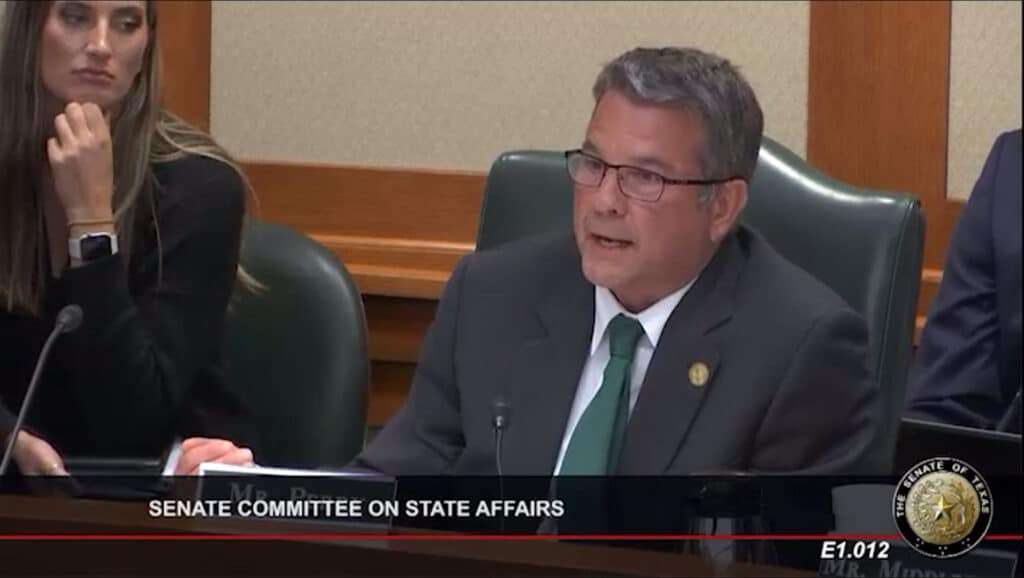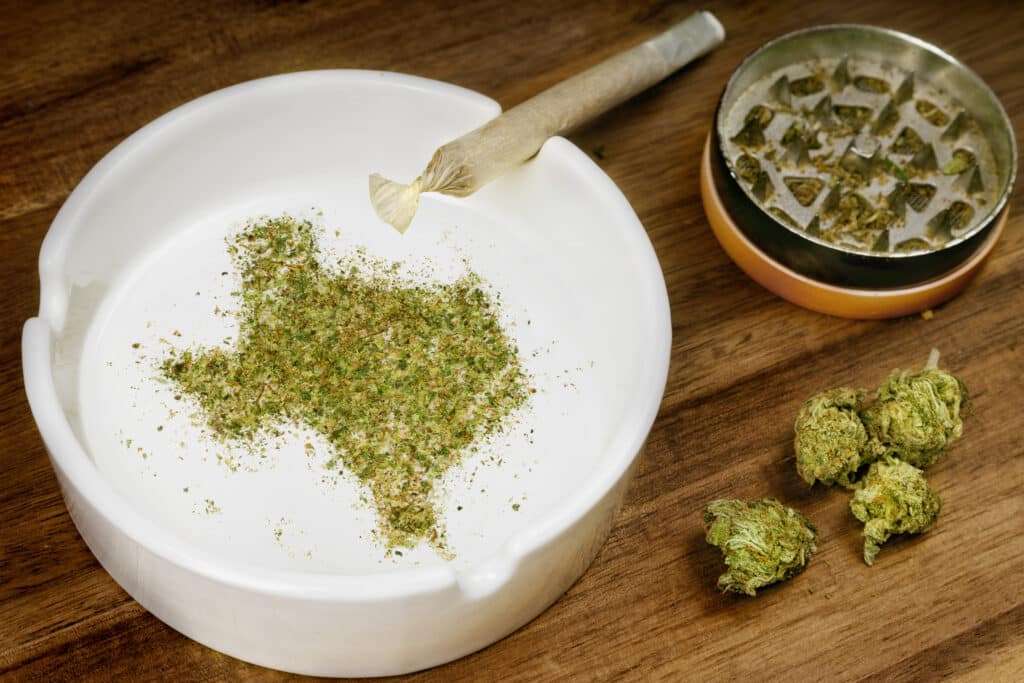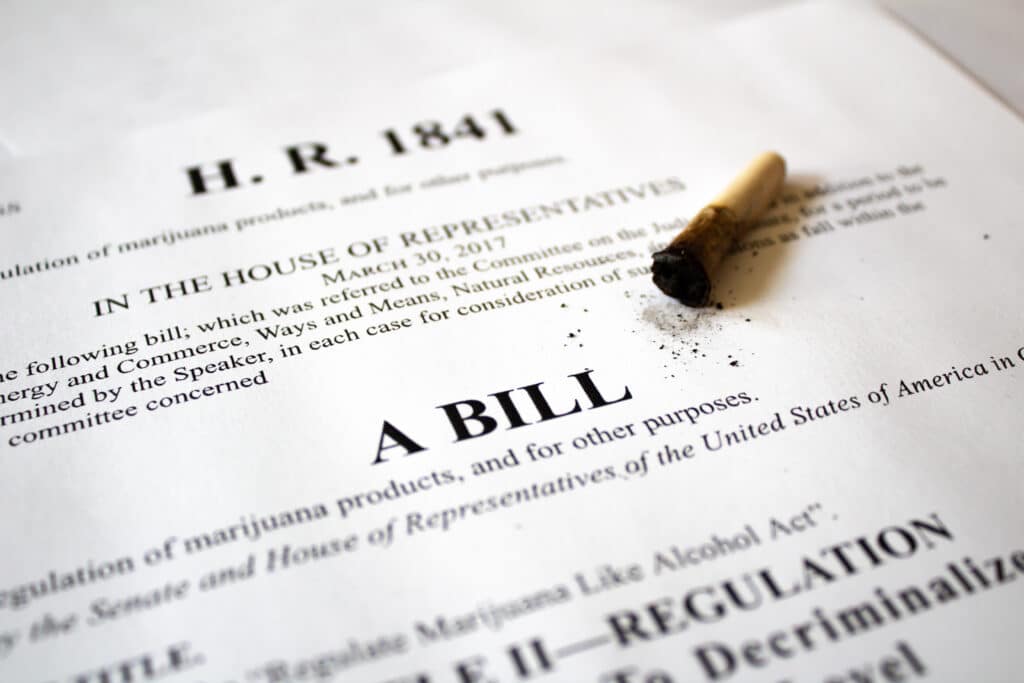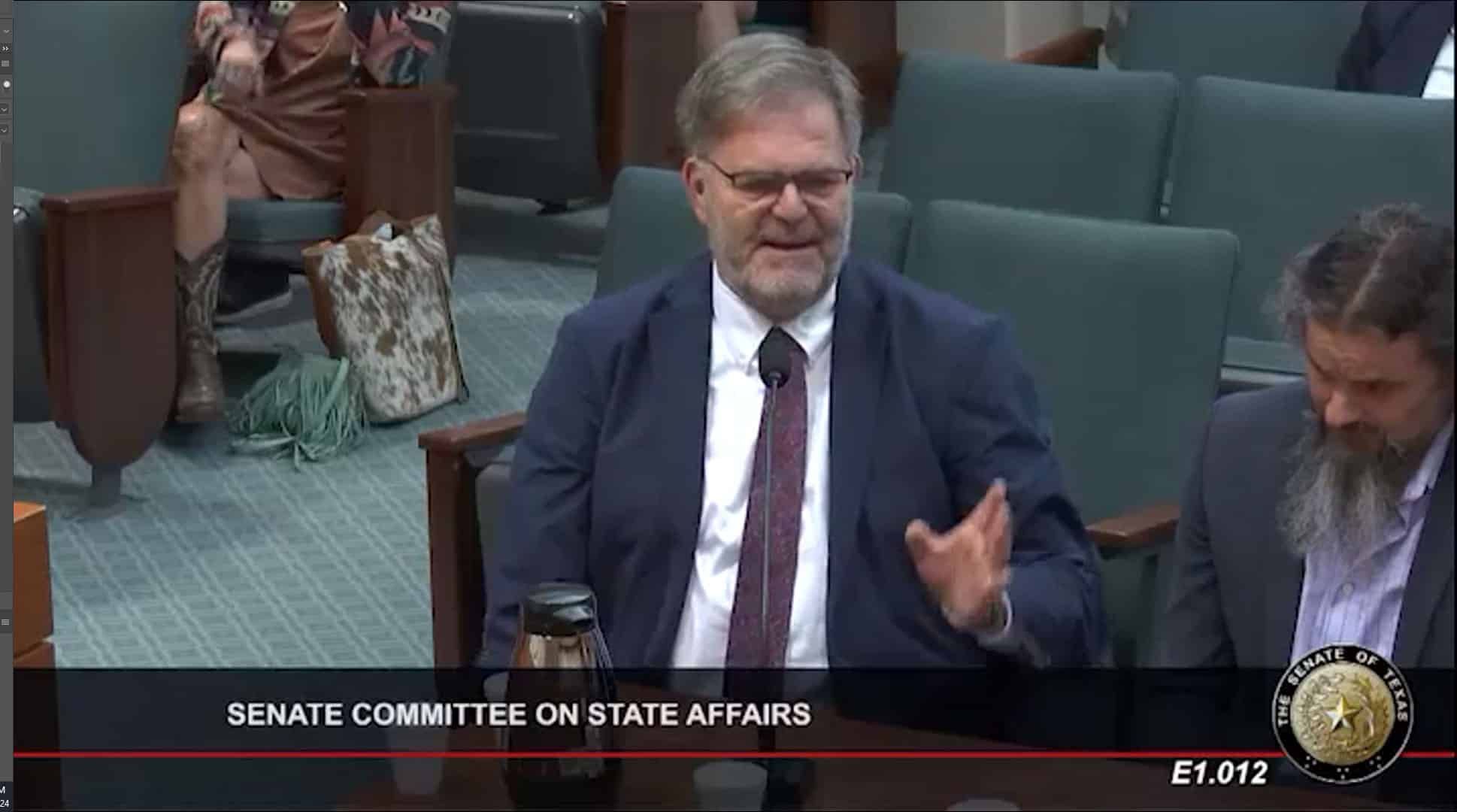Texas Senate Affairs Committee Hearing on Intoxicating Hemp Products
I recently had the privilege of testifying before the Texas Senate Affairs Committee which recently held a hearing to discuss the complexities and challenges surrounding cannabinoid products (both consumable and non-consumable). While it was obvious that Senator Perry has real issues with the state of our industry, it was equally clear that the rest of the panel appeared receptive to the voices form our industry.
The hearing attempted to provide a comprehensive overview of the current landscape, touching on various aspects such as regulatory frameworks, health impacts, and law enforcement challenges. The discussion began with an acknowledgment of the Farm Bill passed in December 2018, which legalized hemp by distinguishing it from marijuana. Hemp, defined as cannabis with less than 0.3% Tetrahydrocannabinol (THC) on a dry weight basis, was excluded from the definition of marijuana.

Regulatory Insights from the Department of Health Services
Tim Stevenson (Ph.D.), a chemist from the Department of Health Services, provided insights into the current regulatory framework for hemp products. Smokable products are treated similarly to consumables, with the state prohibiting their manufacture but allowing their sale. Wholesalers are required to obtain licenses, and the department conducts inspections and tests for Delta-9 (D9) THC, though not for other THC isomers. This regulatory focus is primarily on manufacturers to prevent non-compliant products from reaching retail shelves.
Stevenson explained the chemical similarities between D8 and D9 THC, noting that the primary difference lies in the location of a double bond on their molecular structures. Despite this, both isomers bind to the same receptors in the body. He tried to argue without real data that there are many products on the market that exceed the 0.3% THC limit in retail stores rather than at the manufacturing level
Stevenson also shared detailed statistics about the hemp industry in Texas: 642 licensed manufacturers, 3,633 registered hemp stores, and 7,082 retail locations across the state. The department has plans to hire 12 sanitarian inspectors specifically for hemp to ensure compliance and product safety.
Health Concerns and Medical Perspectives
Dr. Robert Emmick, an emergency physician, represented the Texas Medical Association, Texas Pediatric Society, and the Texas Public Health Coalition. He discussed the health implications of THC ingestion, particularly focusing on three categories of patients: pediatric accidental ingestions, acute psychosis cases, and chronic users suffering from cannabinoid hyperemesis syndrome (CHS). Emmick emphasized the severe neurological issues THC can cause in children and the potential for THC to interact negatively with other medications. As an industry, we agree that children should not consume or be able to purchase cannabinoid products.
He advocated for the Department of Health to have jurisdiction over all consumable hemp products to ensure safety and close regulatory loopholes. He also recommended comprehensive labeling of THC products, investment in laboratory testing, and childproof packaging to protect public health. It should be noted that while not endorsing marijuana legalization, the Texas Medical Association supports the Texas Compassionate Use Program and calls for more research to provide evidence-based guidelines for THC use.
Law Enforcement Challenges
Major Mark Nelson from the Texas Department of Public Safety (DPS) highlighted the difficulties law enforcement faces due to the lack of clarity in current laws regarding various hemp-derived products. He admitted that no reliable roadside tests to distinguish between legal hemp and illegal marijuana, and drug-sniffing dogs cannot make this distinction either. Nelson stressed the need for clear legal definitions to aid law enforcement in prosecuting illegal activities related to these products.

Legislative and Policy Perspectives
Senator Charles Perry, an author of the original hemp bill, expressed disappointment with the industry’s exploitation of legal loopholes to produce intoxicating products. He emphasized the need for a simple regulatory approach rather than chasing ever-evolving chemical formulations. Perry suggested that the Texas Compassionate Use Program is a more controlled environment for THC products, ensuring safety and integrity in the supply chain. It is clear that he wants to establish one or two preferred providers for cannabinoids under TCUP. However, he could not articulate a clear vision as it seemed to dawn on him that if they made hemp-based products illegal he would be handling new business to the cartels and other criminal types and undo the good work done to date while opening the market to those that would use fentanyl. Finally, he also reluctantly acknowledged the negative impact of these legal ambiguities on the agricultural industry’s focus on hemp fiber production.
Senator Jose Menendez pointed out the legalization of hemp with the lack of distinguishable testing methods, made prosecution nearly impossible. This sentiment was echoed by law enforcement officials who highlighted the difficulties enforcement under the current legal framework.

Impact on the Texas Compassionate Use Program and Medical Market
Nico Richardson, CEO of Texas Original Compassionate Cultivation, detailed the challenges faced by the state’s medical marijuana program due to the proliferation of hemp products. He explained that THCa flower, a prevalent product in the hemp industry, While he mentioned that THCa converts to D9 THC when heated. Richardson was really unable to articulate a coherent argument for why hemp should be regulated as opposed to outlawed as his argument was in essence an economically based argument that was a thinly veiled dig at his competition and showed that those in the TCUPS program were interested only in the economics rather than the cost-effective alternative offered by cannabinoids and hemp industry.
It is clear thaty= availability of cheaper, hemp products has led to a decline in patients within the Texas Original medical program. This trend threatens the future of regulated medical marijuana in Texas, as the hemp market offers more accessible yet potentially safer alternatives so long as the industry is properly regulated by the state.
Research and Development Recommendations
Dr. Peter Stout, President of the Texas Association of Crime Laboratory Directors, explained that testing for cannabis products has become more complex and expensive since the federal legalization of hemp. The turnaround time for lab results has increased from 7 days to up to 120 days due to the need for more detailed analyses. He highlighted the funding challenges faced by crime laboratories, which prioritize more critical drug testing over cannabis due to limited resources. It is interesting to note that when my firm sends products to be tested by KCA or New Bloom the turnaround time is days not weeks and the costs are reasonable.
Balancing Regulation and Innovation
The Texas Senate Affairs Committee hearing on hemp products highlighted the complex interplay between regulation, public health, and industry innovation. The testimony underscored the need for a balanced approach that protects public health, supports law enforcement, and fosters responsible industry growth.

To achieve this balance, stakeholders must address regulatory deficiencies, invest in robust testing, and research, and consider the implications of policy decisions on industry viability and ensuring that hemp is available to our veterans as well as our general population while still being safe and well-regulated. The ongoing dialogue between policymakers, health professionals, and industry leaders will be crucial in navigating the evolving landscape of hemp and cannabis products in Texas.
The committee’s deliberations highlighted the urgent need for clear and comprehensive regulations to ensure the safety and integrity of hemp-derived products. By addressing these challenges head-on, Texas can create a regulatory framework that supports innovation in the hemp industry, growth of the industry and access to the much-needed products to our veterans while safeguarding public health and safety.




